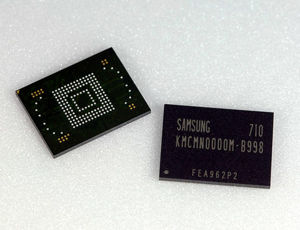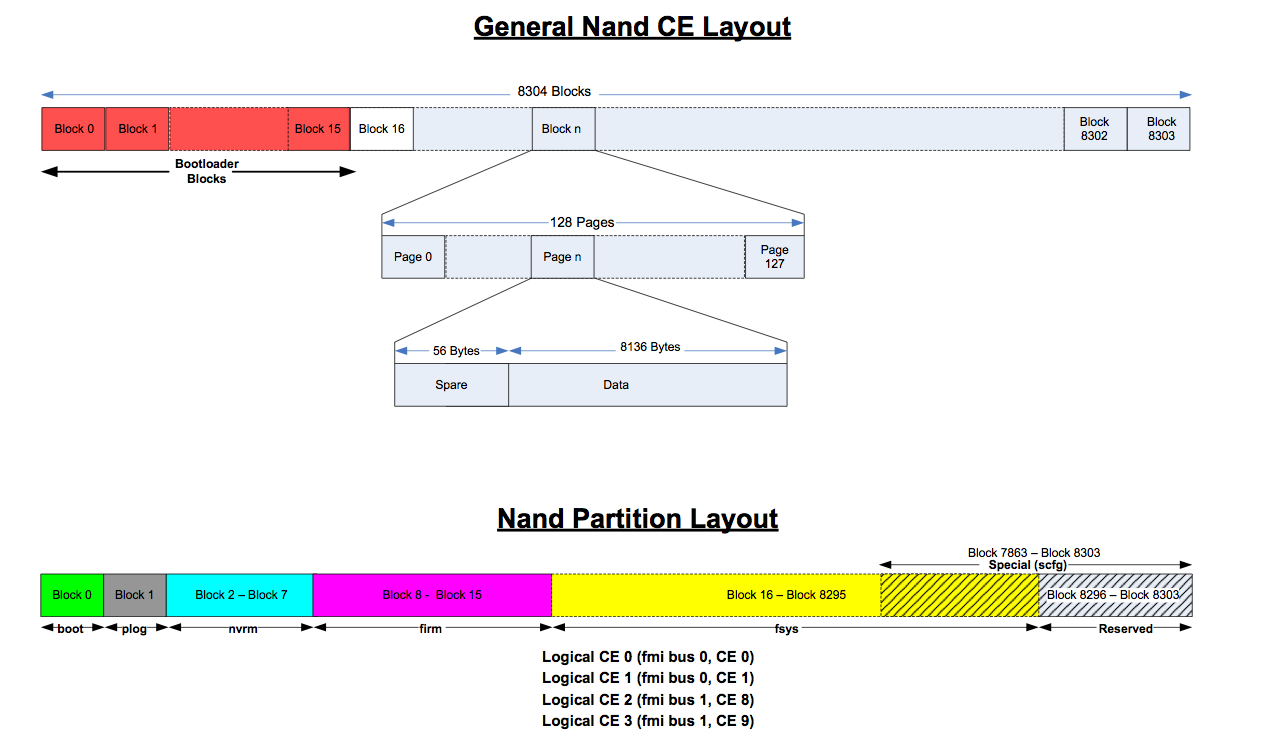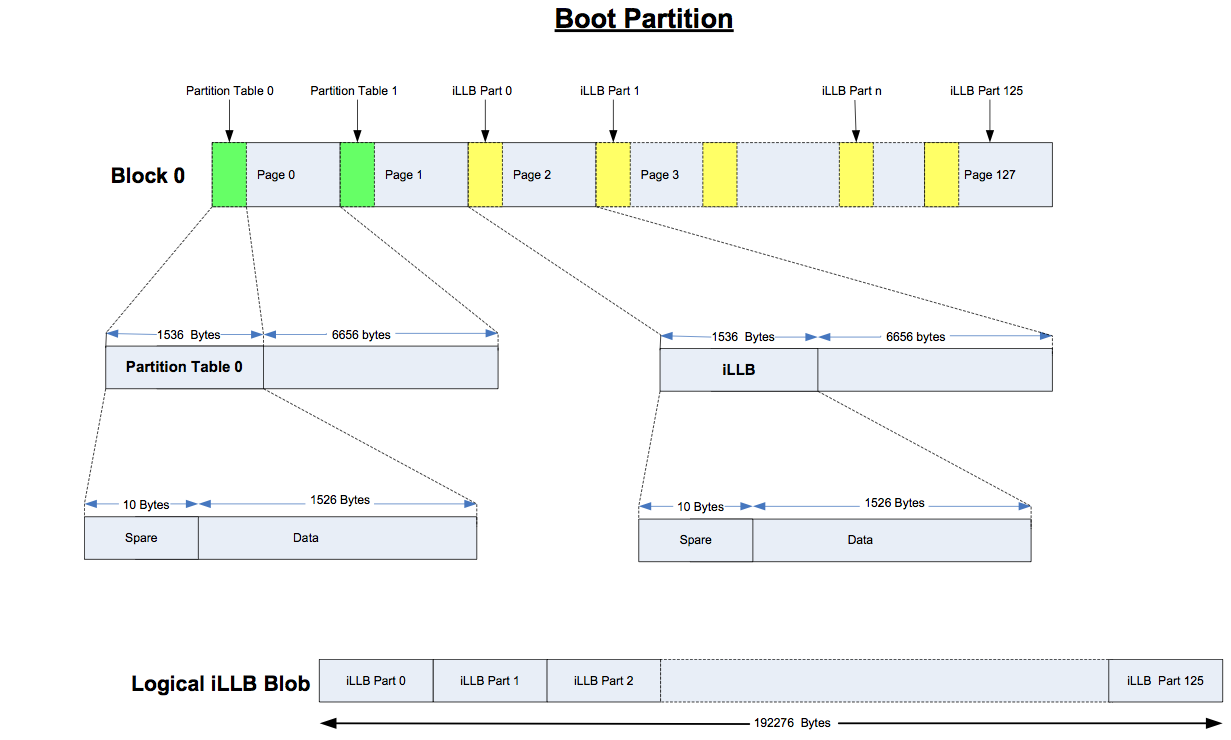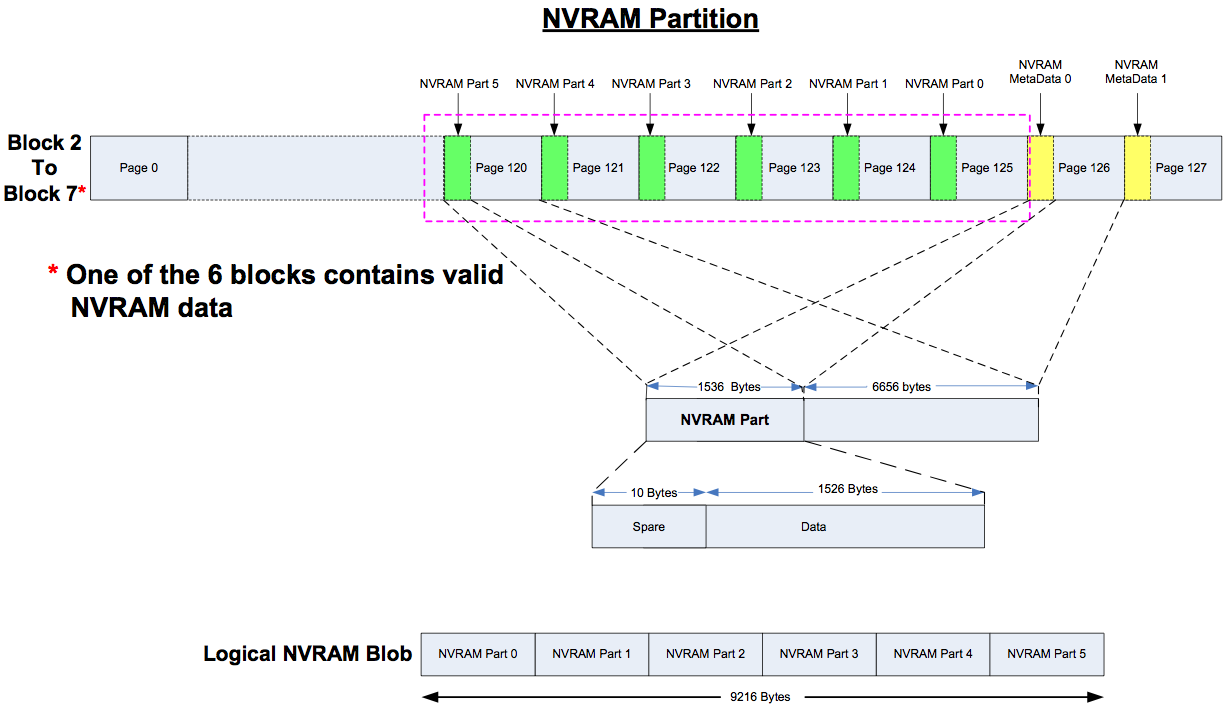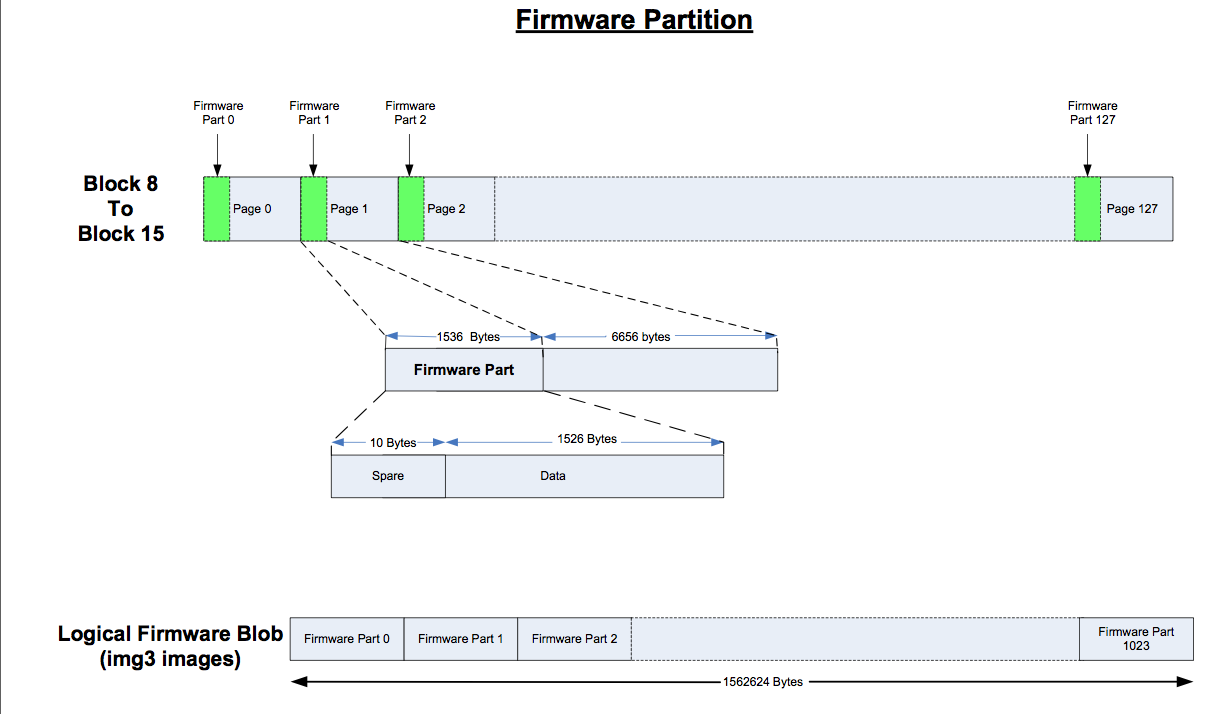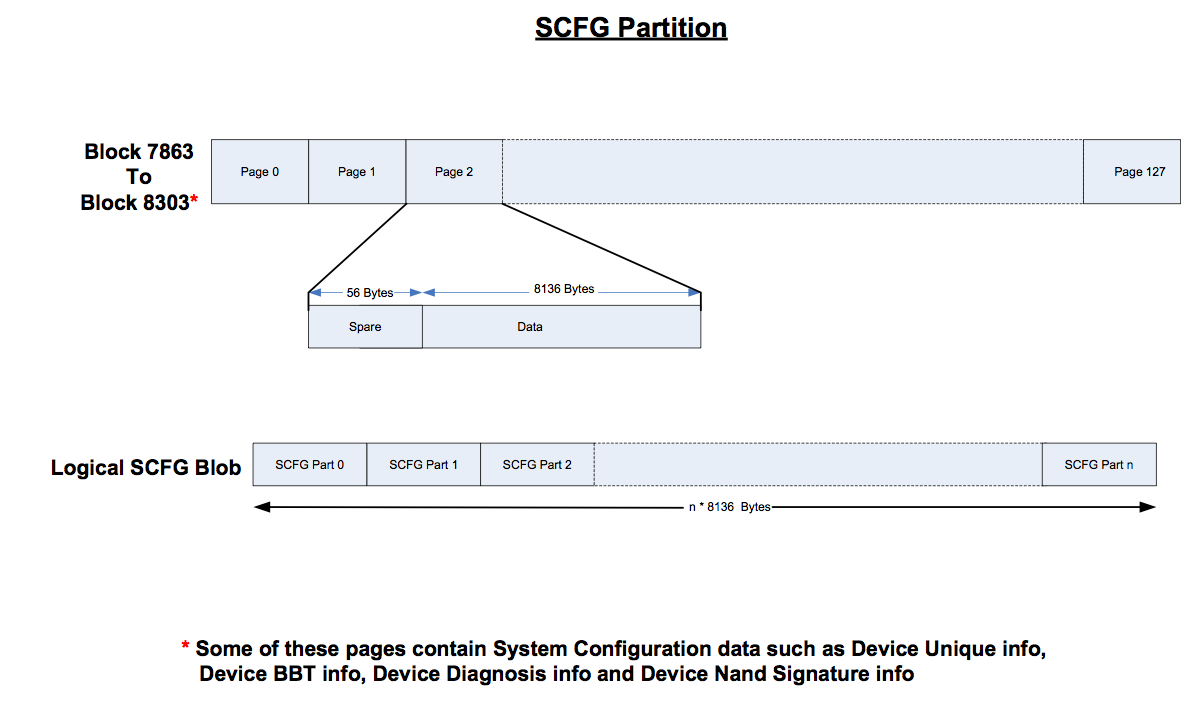|
The iPhone Wiki is no longer updated. Visit this article on The Apple Wiki for current information. |
Difference between revisions of "NAND"
(some more details) |
MuscleNerd (talk | contribs) |
||
| Line 3: | Line 3: | ||
A bare-bones jailbreak modifies the file "[[/etc/fstab]]" and enables read and write on all 2 partitions. |
A bare-bones jailbreak modifies the file "[[/etc/fstab]]" and enables read and write on all 2 partitions. |
||
| − | + | NAND partition layout in modern devices, courtesy [[CPICH]], published in [http://twitter.com/cpich3g/status/15966288660660224 Twitter] ([http://freepdfhosting.com/29256fdff9.pdf NAND partition layout])... |
|
| + | |||
| + | [[Image:N1.png]] |
||
| + | [[Image:N2.png]] |
||
| + | [[Image:N3.png]] |
||
| + | [[Image:N4.png]] |
||
| + | [[Image:N5.png]] |
||
Revision as of 11:14, 18 December 2010
This refers to the NAND flash chip used in the Apple TV, iPad, iPhone, and iPod touch. This is where all the storage capacity comes from. The capacity can range from as little as 4GB to as many as 64GB. in iOS, it is partitioned into two: the system partition and the user partition. The system partition contains the iOS operating system and the native Apple applications, and is mounted as read-only. The user partition contains all user data, including installed applications, music, and movies, and is mounted as read/write. A bare-bones jailbreak modifies the file "/etc/fstab" and enables read and write on all 2 partitions.
NAND partition layout in modern devices, courtesy CPICH, published in Twitter (NAND partition layout)...
